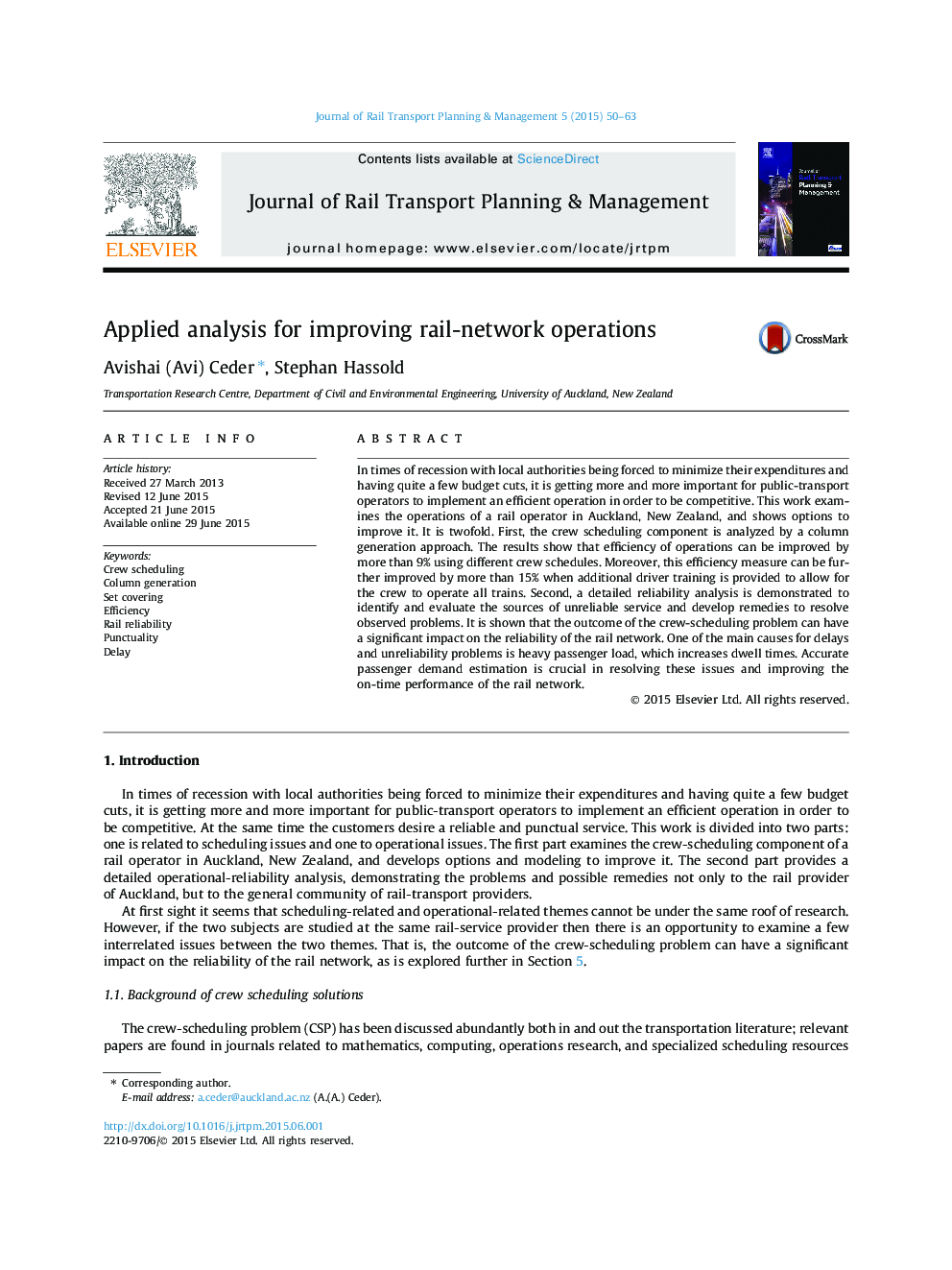| Article ID | Journal | Published Year | Pages | File Type |
|---|---|---|---|---|
| 286423 | Journal of Rail Transport Planning & Management | 2015 | 14 Pages |
•Crew-scheduling component is analyzed by a column generation approach.•Results show that efficiency of crew schedules can be improved by more than 9%.•Additional driver training will increase the improvement to 15%.•A detailed reliability analysis is demonstrated.•A main causes for delays and unreliability problems is heavy passenger load.
In times of recession with local authorities being forced to minimize their expenditures and having quite a few budget cuts, it is getting more and more important for public-transport operators to implement an efficient operation in order to be competitive. This work examines the operations of a rail operator in Auckland, New Zealand, and shows options to improve it. It is twofold. First, the crew scheduling component is analyzed by a column generation approach. The results show that efficiency of operations can be improved by more than 9% using different crew schedules. Moreover, this efficiency measure can be further improved by more than 15% when additional driver training is provided to allow for the crew to operate all trains. Second, a detailed reliability analysis is demonstrated to identify and evaluate the sources of unreliable service and develop remedies to resolve observed problems. It is shown that the outcome of the crew-scheduling problem can have a significant impact on the reliability of the rail network. One of the main causes for delays and unreliability problems is heavy passenger load, which increases dwell times. Accurate passenger demand estimation is crucial in resolving these issues and improving the on-time performance of the rail network.
